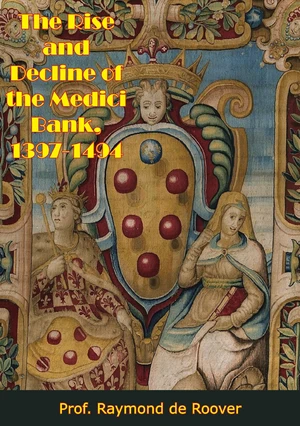The roots of modern capitalism go back to the Italian banking system of the late Middle Ages and the Renaissance. In the fifteenth century, the Medici Bank succeeded in overshadowing its competitors, the Bardi and the Peruzzi, who were the giants of the fourteenth century, and grew into a vast establishment with branches in most of the large cities of Western Europe. A study of its operations is essential to an understanding of the economic conditions in Europe in the fifteenth century. From a careful study of pertinent documents, including a set of libri segreti (confidential ledgers) discovered in 1950, Professor de Roover has reconstructed the details of the bankâs organization and operating methods; its loan policies, which reflected the Churchâs doctrine on usury; its trading and industrial investments; its roles within the Florentine gild system and tax structure; and its activities as financial agent of the Church. He covers every aspect of the bankâs history, from its early years under the management of Giovanni di Bicci deâ Medici to its collapse with the expulsion of the Medici from Florence. âAn invaluable contribution to the economic history of the periodâ¦.A splendid book.ââHarry A. Miskimin, The American Economic Review âThe most important work in English on a medieval or Renaissance bank.ââThe Economist âThe best book ever written on the medieval banking system.ââJohn T. Noonan, Jr., Harvard Law Review âThe most authoritative treatment of its subject in any language.ââRondo Cameron, The Accounting Review
Price history
Oct 25, 2021
€5.28

